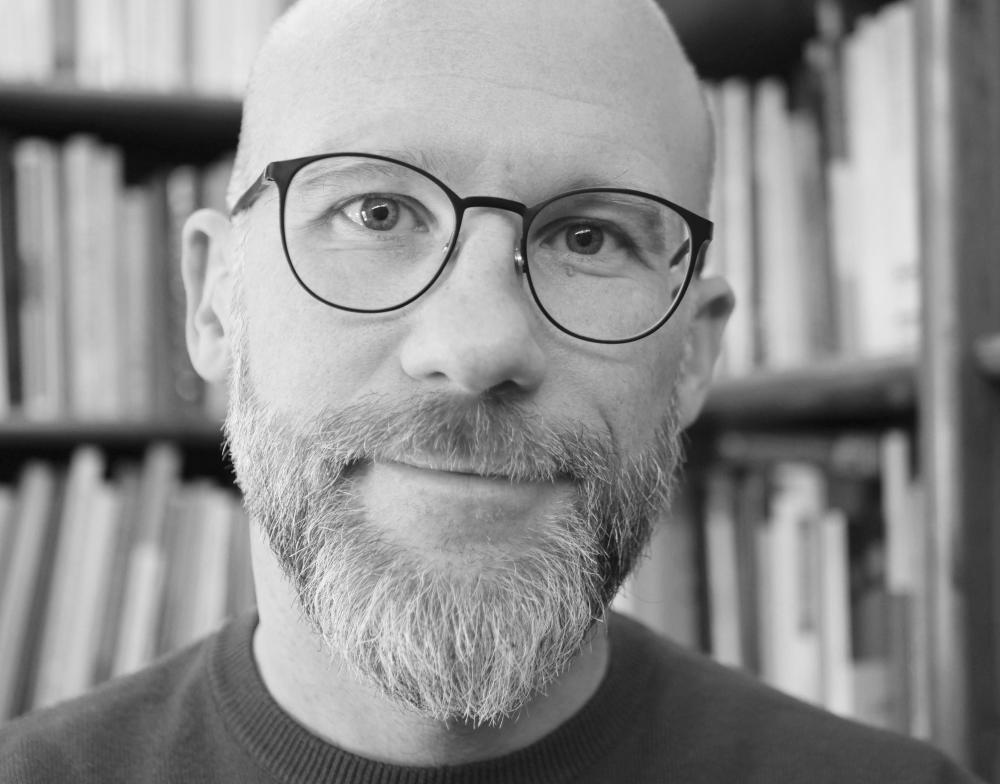
Professor Giovanni Grandi from the University of Padua will be one of the plenary contributors of the 11th international EFRJ Conference in Sassari. Heidi Jokinen interviewed him through email about what he plans to bring to Sassari.

Professor Giovanni Grandi from the University of Padua will be one of the plenary contributors of the 11th international EFRJ Conference in Sassari. Heidi Jokinen interviewed him through email about what he plans to bring to Sassari.
The 11th international conference of the European Forum for Restorative Justice (EFRJ) takes place in the island of Sardinia on 23–25 June 2022. The conference is entitled Justice beyond borders: Restorative connections through space and language. It is the liminal metaphors of borders, boundaries and frontiers that will inspire and challenge us throughout our three day event. Our main focus is understanding together the way in which restorative approaches can contribute towards undoing suffering and injustices that are experienced by people because of physical, economic, cultural, political and social borders. Only by getting closer to limits can we re-examine identities, transcend constructed barriers and discover new ways to embrace diversity and live together at peace.
The conference will host about 150 presentations from across the field of restorative justice, both practitioners and academics. The list of keynote speakers for the conference is breathtaking.
In this blog series, edited by Heidi Jokinen and Claudia Christen-Schneider, you will have a chance to get to know some of the key note speakers, about their background and even a peek into their talks at the conference.

You're Associate Professor of Moral Philosophy: what has moral philosophy to do with restorative justice?
Moral philosophy has first and foremost a lot to do with justice, and before that with injustice. We have all heard the saying that philosophy begins with wonder, with amazement at beauty (Plato: Theaetetus 155d). The Beauty and the Good, when they strike us with force, they fascinate us and make us stop. And when we stop we begin to think and reflect.
But philosophy also begins in parallel when we come into contact with evil, and more precisely with injustice. Injustice is a particular experience of evil that surprises us: we did not think that a certain thing could be taken away from us — a good, a right, a relationship … — and yet this is happening. We feel that things are no longer right. We feel that what is happening is not good. This is precisely what moral philosophers call ‘evil:’ a lack, that opens up in life and causes suffering.
When we experience lack, and especially when we feel that it could have been avoided, then we feel anger and start thinking about how to react. Amartya Sen begins his book on The idea of justice (Sen, 2009) by recalling an episode from Great expectations by Charles Dickens, and points out that from childhood we all have a natural sense of injustice. He adds that injustices that we feel could have been avoided make us especially angry. So we all experience two things: the desire to make things right — as my friend Howard Zehr says — and the fact that we face this desire in many cases with a lot of anger.
And so we come to the point: moral philosophy deals with good and evil; it deals with our reactions to good and evil — and our reactions to evil are very thought-provoking, because when they are driven by anger we often try to put things right by doing more evil. Plato and Aristotle talk a lot about this in ancient moral thought: is reciprocating evil really doing justice? Plato thought not. Aristotle said that it is, however, what we mostly do. Here we find at the heart of philosophical reflection on good and evil the problem of how to respond to evil. Is this not the central problem of restorative justice?
When did you first hear about restorative justice? What intrigued you about it?
I owe my encounter with contemporary reflection on restorative justice to Guido Bertagna. Guido is a Jesuit father who together with other people, Claudia Mazzucato and Adolfo Ceretti in particular, accompanied a path of mediation between the victims and the protagonists of the armed struggle in Italy in the Seventies. I had the opportunity, thanks to him, to meet some of them and to understand from their way of being together that reparation is really possible, even when something extremely serious has happened between the parties. The story of these people is told in the Book of the encounter (Bertagna et al., 2015) and makes us understand the strength of restorative justice paths, in particular of the paths inspired by Jacqueline Morineau’s Humanistic mediation (2013).
I immediately perceived that restorative justice solicited a lot of moral reflection, and I found that from the scientific point of view this was strangely undetected. At least in Italy, there are many scholars in criminal law who deal with restorative justice, as well as psychologists and social workers, but the moral and anthropological dimensions seemed little explored. So I started to take a closer look at it.
In 2018 I organised an International Conference in Padua attended by about a hundred people from all over the world, bringing experiences and reflections. It was an opportunity finally to meet the EFRJ and to start other friendships, in particular with Howard Zehr, with whom I had the chance to discuss a lot, staying in touch afterwards. This led to some publications, the purpose of which was precisely to bring together contemporary thinking on restorative justice with the insights of classical moral thought. Simone Grigoletto helped me in this work (Grandi and Grigoletto, 2019), which is really very interesting and continues to intrigue me.
May we peek into your keynote to the Sassari conference? What is the message you will be bringing to the participants?
In Sassari, I would like to focus on the value of words and in particular on the path that words take within each of us.
The ancients pointed out that the violence of gestures explodes because first, within us, violent dialogues have developed. Evil often conquers us through speeches that only we can hear and accept; recognising them, and not allowing ourselves to be deceived, is fundamental both to avoid conflicts degenerating into war, and to make room for reparative perspectives.
Learning to recognise and live with attention to the dynamics of the inner life is very important, precisely in order not to let our ‘doing justice’ to be captured by that anger we were talking about at the beginning.
I would like to try again to link restorative justice to one of the classical topics of antiquity, which is self-government and inner vigilance. These are important practices for mediators, but I think for all of us, when we find ourselves in conflict situations.
The past months have been quite some in Europe, from Covid-19 to war in Ukraine. Is this something that could be dealt with in terms of restorative justice?
In Italy many people involved in restorative justice have tried to take charge of what needed to be repaired after the experience of the pandemic. There are good experiences, especially in Bergamo, where the pandemic started in a dramatic way: Filippo Vanoncini and Alessandra Gaetani are working hard there.
These days, however, our thoughts turn to war, to all wars and their tragedies, on which what is happening in Ukraine is making us think more strongly. The issue of reparations will be decisive; there are enormous reparation commitments incumbent on Putin and his military apparatus. If all this will remain unaddressed, there can be no peace; there will only be a new incubation period for other wars. But we also realise how difficult it is to address the issue of ‘doing justice’ until the parties are separated and the violence of the aggressors stops.
We realise how powerless we are internationally in the face of aggression; we are faced with a dramatic dilemma: should we wait for the violence to end by itself or should we intervene with violence to stop it?
René Girard said that men resort to violence not because they love it, but precisely because they would like to make it stop. But, he said, it is an illusion to think that there is a ‘last violence.’ Nonetheless, the moral dilemma remains. But when this will stop, fear will be replaced by anger. Relations between peoples have been polluted, and not only between the direct protagonists of the aggression and their victims: will there be the strength and capacity to start a capillary work of meeting and listening to the suffering, not only of today but also of yesterday?
I believe that if for a long time, especially in Italy, we have concentrated on restorative justice from the point of view of criminal justice, now it will be necessary to better understand its possibilities in relations between groups and between peoples. It is a very narrow path, but I believe that the way to authentic peace can only pass through this.
Giovanni Grandi is an Associate Professor
at the University of Padua
in Italy.
Contact: giovanni.grandi@unipd.it. He was interviewed by
Heidi Jokinen. She is a Post-Doctoral Researcher at the Åbo Akademi University in Finland.
Contact: heidi.jokinen@abo.fi.
20 April 2022.
Bertagna, G., Ceretti, A. and Mazzucato, C. (eds.) (2015). Il libro dell’incontro: vittime e responsabili della lotta armata a confronto. Milan: Il Saggiatore.
Grandi, G. (2019). ‘Inciting to good and murmuring at evil’: the medieval concept of ‘synderesis’ and the restorative process. Verifiche XLVIII(2):133–154. Philosophical insights for a theory of restorative justice.
Grandi, G. (2020). Fare giustizia: un’indagine morale sul male, la pena e la riparazione. Padua: Padova University Press.
Grandi, G. and Grigoletto, S. (eds.) (2019). Restorative approach and social innovation: from theoretical grounds to sustainable practices. Padua: Padova University Press.
Morineau, J. (2013). La médiation humaniste: un autre regard sur l’avenir. Toulouse: Éditions Érès.
Sen, A. (2009). The idea of justice. London: Allen Lane.
Published on 19 April 2022.